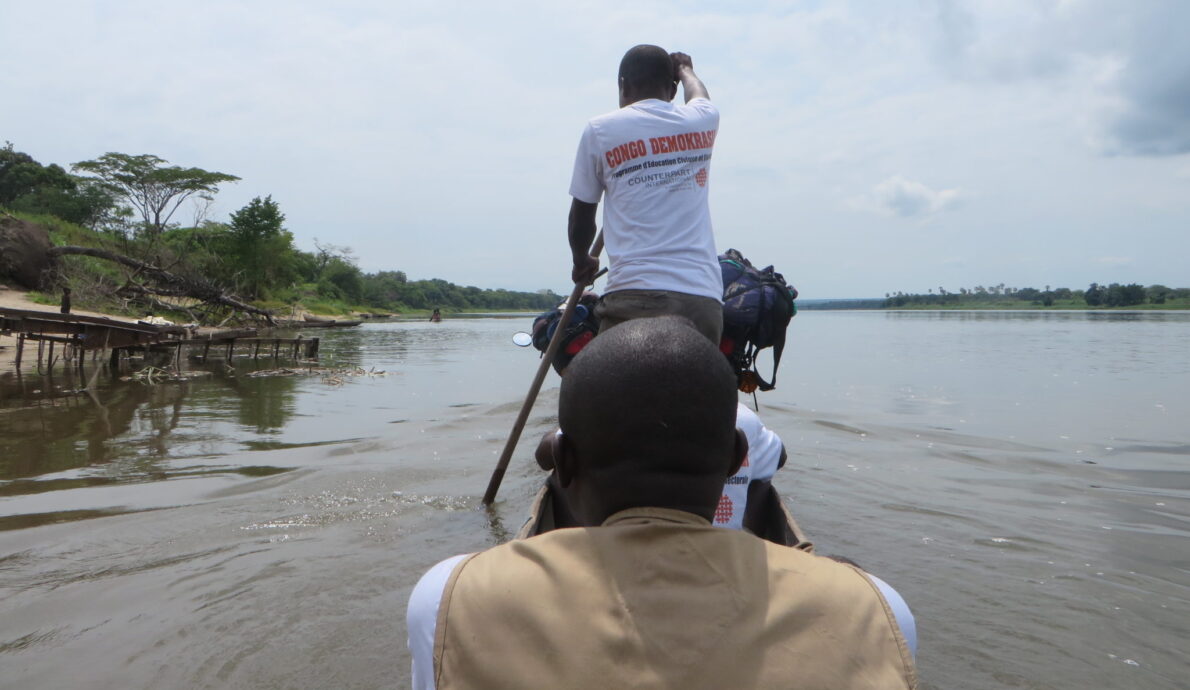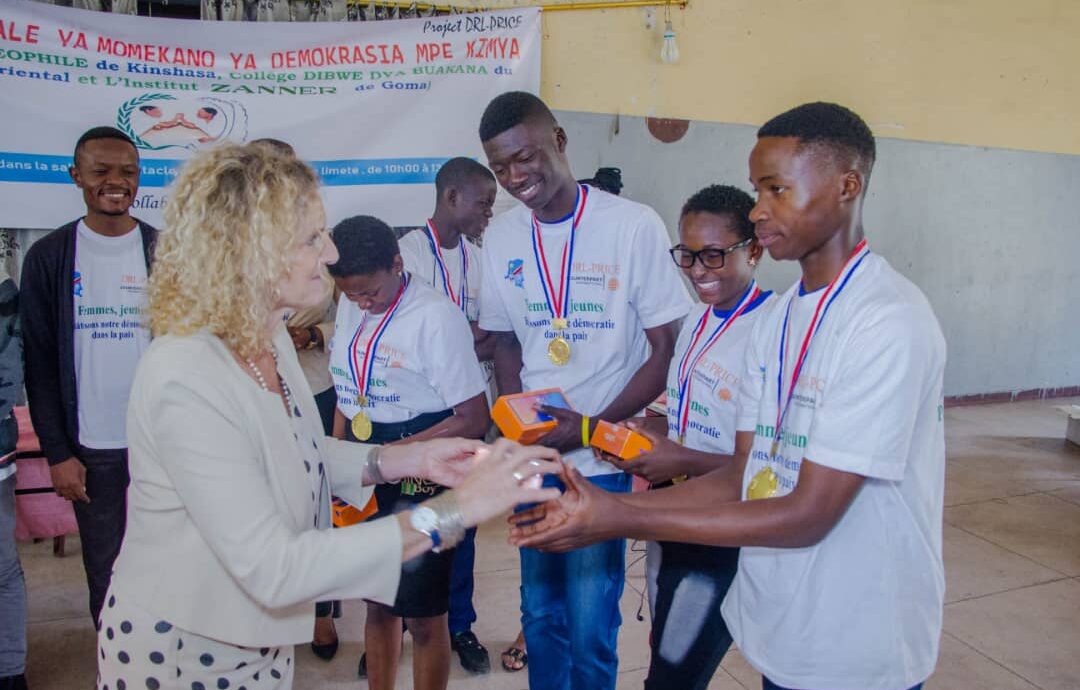This blog is part of a series of articles written by University of Dayton students, published as part of Counterpart’s Next Generation in Thought Leadership initiative. The opinions expressed in this article are the author’s and do not express the views or opinions of Counterpart International.
In January 2019, national elections finally took place in the Democratic Republic of Congo (DRC) after being postponed three times due to violence. Many citizens were suspicious of the electoral process and believed that there were miscalculations in the results. Such delays are not unprecedented. Since the DRC gained its independence from Belgium in 1960, the country has been politically unstable. This instability has negatively affected citizens’ ability to participate in free and fair elections. Those at a particular disadvantage include youth, specifically those under the age of 18, women, and people who live in militarized areas which do not have adequate government control or intervention.
Previous laws prohibited those under the age of 18 from voting. Recently, the government determines voter eligibility using an old voter registry which does not account for the Congolese citizens who reached voting age after 2011. Moreover, in many parts of the country, the youth are uneducated and unemployed without access to civic and voter education. In addition, women aren’t encouraged to take part in political activities in the DRC as a result of inequalities in access and continuing cultural barriers to women in decision-making.
Our research
We evaluated Counterpart International’s Promoting Increased Civic Engagement in the Lead-up to Elections in the Democratic Republic of Congo (PRICE) program in the DRC by reviewing similar development projects from different organizations to better analyze the program. We also studied Counterpart’s Inclusive Social Accountability (ISA) method. The method is grounded on local ownership and communities to ensure long-term impact through the three components of partnerships, inclusion, and flexibility.
PRICE supports local civil society organizations (CSOs) with the aim of ensuring the participation of the youth in the electoral and governance processes. The program supports CSOs with necessary information about the new electoral legislation, voter registration, and new voting technology. A key component of the project is a collaboration with local CSOs, international non-governmental development organizations, and the Commission Electorale Nationale Indépendante (CENI) to create gender and social inclusion training that promotes the direct participation of women and ensures gender inclusivity in civic and voter education materials.
In addition, PRICE involves youth and women in public forums, and many social activities targeted at engaging and allowing these groups to be heard. PRICE gives them tools to better understand the electoral process, such as educating marginalized groups about the requirements of the registration process, and providing examples of peaceful voting processes, especially for the youth. PRICE youth activities involve competitions, as well as messaging about peaceful protest and conflict resolution to address the violence that erupts during protests and promote knowledge of citizens on how to participate in conflict-free elections. The debates and competitions include activities like drawing democracy and peace in DRC, skits about peaceful elections, and questions/answer game school competitions.
Our findings
Based on our analysis, we found that the PRICE program has been successful, and in line with the ISA methodology. The program was able to give small grants and other resources to local CSOs and organizations. It implemented voter education campaigns, forums for youth and women, training for marginalized communities, workshops, technical assessments, and effective media campaigns. However, the PRICE program takes place in a challenging context. For people who live in highly militarized areas, it was difficult for Counterpart to reach them due to fighting between militia groups and government troops. In addition, the government has consistently suppressed the exchange of information and independent reporting, by shutting down the internet and stopping text messaging, which negatively impacts PRICE activities.
We also identified that PRICE should increase its focus on becoming more inclusive of young people from different backgrounds and gender. This would better support the grantees in the conflict-affected and militarized regions of the DRC. Small grants and resource support, such as toolkits, should be tailored specifically to the many DRC regions and to specific marginalized groups. Stakeholders should be included in the development of different resources or tool kits that Counterpart distributes to CSOs and local partners on the ground. Changes to toolkits and activities could center around gender inclusivity in the context of the youth, participation in electoral and governance processes at local and regional levels (not just national), provision of examples of the impact of voting and when youth voice is heard. We found that while the PRICE tools explain democracy sufficiently, more resources could focus on providing the citizens with clear “how-to” guidance to promote democracy locally.
Through our research, we have learned about the many challenges that come with implementing development projects in countries with low voter turnout among the youth and women. We now understand the importance of partnerships, inclusion, and flexibility as key approaches and we found these unique to Counterpart in comparison with its peer organizations. We believe that having a framework like ISA is essential for establishing sustainable relationships between the local community and CSOs.




